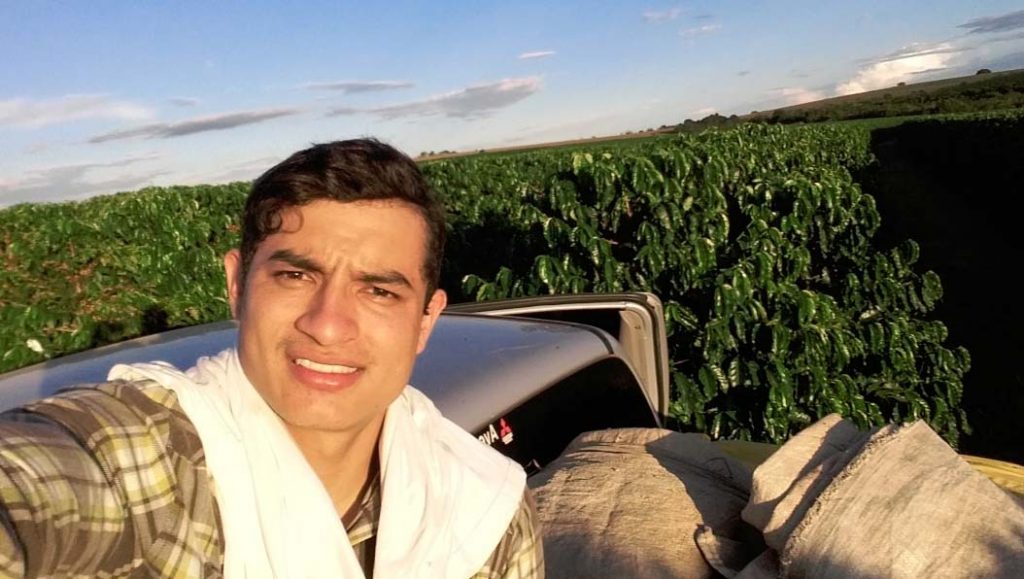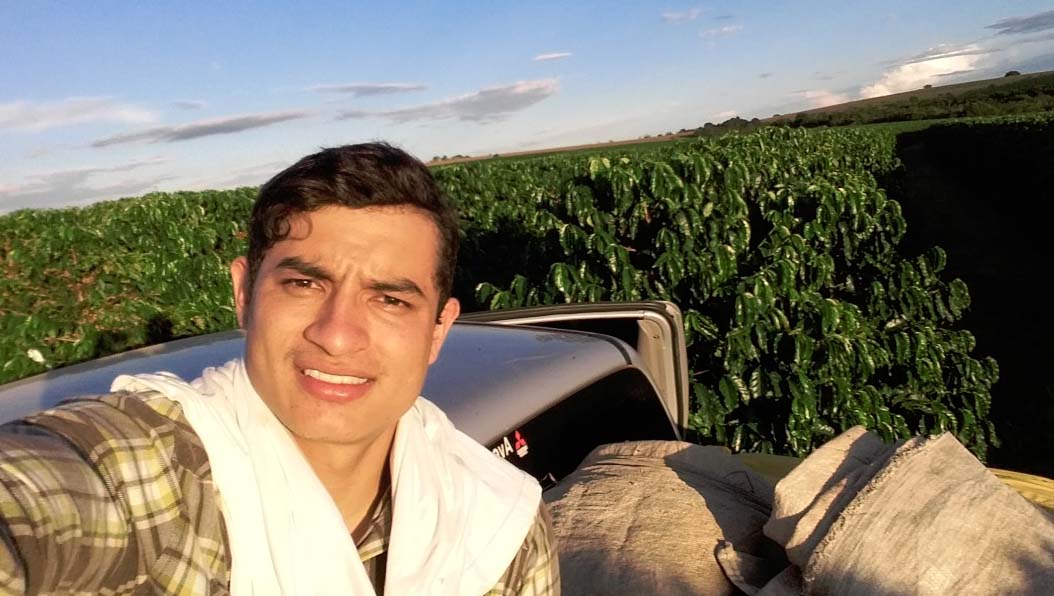
Heiber Andres Trujillo Samboni, 29 years old, Colombian. Profession: Agronomic Egineer and PhD student in Agronomy Sciences in Ondokuz Mayis University in Turkey. Son of a family farmers dedicated to the production of coffee for all generations.
I met him during a cupping event in his hometown Pitalito, when I was travelling with a group of coffee roasters and coffee importers from Austria and Germany. Here is what he thinks about coffee, fair trade and agriculture in Colombia.
1. What is it that links you to coffee? Why do you work with coffee?
Agriculture in our region represents the primary working activity that has been maintained over generations through the transfer of first-hand knowledge about the cultivation and production of coffee. This activity also represents the main economic pillar to support coffee-growing families and social development within the region. Coffee growing has also served to raise awareness of the cultural aspects of the farmers, who have subsequently started to receive great national and international recognition – the population has therefore become rightly proud of this activity.
I work with coffee out of a sense of responsibility, and at the same time it is an activity which has opened up all kinds of opportunities for me – both personally and amongst my family. Coffee is an interesting product – not only does it offer the opportunity to maintain oneself and one’s family economically, but also to constantly develop oneself personally. For me it means that I can and must acquire knowledge in the development and application of new technologies, as well as in the search for solutions to problems at every stage of the agricultural process.
2. What did you do before you worked with Coffee?
Coffee was the first job I learned – in the region where we live (Department of Huila, Colombia) coffee is the main source of income for most people.
3. What is the most important thing about coffee for you? What is „good coffee“ for you?
For me, the most important thing about coffee is the diversity it represents, both in the way it is produced and also in the preparation. Coffee is a very flexible product that can be adapted to a variety of conditions – this can be seen not only in the agronomic care, but also in the variety of coffee-based by-products that are currently being developed. This flexibility in cultivation and post-harvesting means that coffee cultivation can be carried out by large, medium and small producers alike – all over the country at both regional and national scale.
For me, a good coffee is one which combines all the characteristics which are pleasant for my taste in terms of taste, body, aroma, acidity, etc.
But for me, coffee is best when it has been grown sustainably. This means that origin and cultivation practices play an important role, and that both harvesting and post-harvesting are undertaken using a sustainable production model.
4. How do you drink your coffee (preferably)?
I prefer to drink espresso but there are other preparations I also like, for example cappuccino or milkshakes based on coffee.
5. What do you think about fair trade?
Fair trade arose from the need to meet the costs of producers and also to establish social and environmental standards within the production chain.
Although this concept and movement has been functioning for several years, there is a great deal of ignorance among business leaders in the production and trade chain. This is true for producers and traders, but also for the overall industry when it comes to establishing the rules of negotiation – hence why fair trade has not been implemented efficiently.
At least for the time being, the biggest problem for coffee producers in Colombia has to do with trade – although coffee is the most important agricultural product in the Colombian economy, low prices and wide price fluctuations mean that production costs are often not covered. As a result, many farmers are no longer able to grow coffee because they cannot feed their families from the sales revenues. They now have to grow other products or take up other activities.
Nevertheless, the efforts to promote the consumption of sustainable coffee varieties and the interaction of the buyer direct with producer make for interesting activities in this pursuit.
6. Is there anything else you would like to add?
One of the biggest obstacles to the development and competitiveness of the agricultural sector in Colombia, including coffee cultivation, is the low level of adoption of science and technology. I also think it is absolutely necessary to train farmers in topics such as post-harvest and the use of new technologies.
I think that coffee growing should have greater recognition not only in national settings, but also in global markets.
At present our region has the best coffee producers, they are people who work with great efforts to guarantee a high quality product, overcoming obstacles of technical, climatic type and market fluctuations. However, working conditions and dignity are precarious. The coffee sector is going through a crisis related to high input prices, but above all at the low price that markets pay for Colombian coffee. The lack of guarantees results in the leavement of the farms and with it a new form of migration in the country. Although fair trade policies have been proposed for several years and are aimed at “promoting fair conditions in the exercise of the marketing of products and services that guarantee the social and environmental sustainability of the activity, involving responsible consumers” in the There is a great lack of knowledge on all actors that are part of the coffee production and trade chain. I think it is important to bring customers (buyers and consumers) to know directly the way we produce coffee, to identify the importance that coffee represents for social, cultural, environmental and economic stability of more than 560.000 families that depend on this activity. In addition, I consider it important for the world to recognize quality and pay for what is necessary because only in this way can we guarantee the sustainability of coffee growing in the coming years.


